| Revista Umělec 2009/2 >> Analysis of the seminar "Writing Central European Art History" initiated by Erste Foundation | Lista de todas las ediciones | ||||||||||||
|
|||||||||||||
Analysis of the seminar "Writing Central European Art History" initiated by Erste FoundationRevista Umělec 2009/201.02.2009 Eduard Freudmann, Ivan Jurica und Ivana Marjanović | scholarship | en cs de |
|||||||||||||
|
The “Writing Central European Art History” seminar was put together by the Austrian Erste Foundation and the Austrian department of the international non-profit organization World University Service (WUS) as part of the project “The Patterns Traveling Lecture Set” initiated by the Erste Foundation.
The set included lectures by seven scholars from the so called Eastern Europe (Czech Republic, Estonia, Hungary, Poland, Serbia and Slovakia): Edit András, Jan Bakos, Ljiljana Blagojević, Mart Kalm, Vojtech Lahoda, Piotr Piotrowski and Misko Šuvaković. The seminar was organized at the Academy of Fine Arts Vienna in collaboration with the Post-conceptual Art Practices class (Univ. Prof. Dr. Marina Gržinić). The lectures were also held in the universities of Belgrade (Serbia), Cluj-Napoca (Romania) and Poznan (Poland). An edited transcript of a discussion among students of the Post-conceptual Art Practices class, students of other classes in the academy and the editors of the text (Eduard Freudmann, Ivan Jurica and Ivana Marjanović) is printed here. It is the outcome of a longer process of preparation readings for the seminar, critical reflections and finally public lectures and discussions. In terms of better comprehension and dramaturgy the original statements were edited and thus the names of the discussion’s participants were changed. All events took place in the Post-conceptual Art Practices class during the winter semester 2008/09 A trip to the imperial capital Ana: I would like to start the discussion with a general reflection on what it means to have courses or seminars in public educational institutions organized and funded by private investors. Sofia: I think the close relation of private capital and a public university needs to be analyzed in the context of the reforms of the European educational system within the Bologna process. Because of the commodification of knowledge and the privatization of education, the banks started to have an interest to engage with universities. On the one hand they make business by offering loans to students that have to be refunded after their studies. This is the case in Italy, where the implementation of the Bologna reforms is much more advanced than in Austria. On the other hand they are more and more influencing the content of studies. Albert: Last semester a lecture series was organized at the Institute of Philosophy of Vienna University in cooperation with Erste Bank. It was called “Corporate Social Responsibility” and employees of the bank were lecturing about the ecological and social responsibility of economic enterprises. When the rector of the university and the CEO of the bank presented the series at the first lecture, some students expressed their resentments and posed critical questions which were blocked immediately. Instead of having a discussion with the students the two men performed a public discussion about who is richer and possesses more stocks of the Bank. Anja: It is also important to mention that the bank advertised three scholarships of 500 Euro for students whose diploma thesis subjects were connected to the lectures. Petr: Although the approach of Erste Foundation in our Academy was not that rough, the logic is the same, namely to gain an academic legitimization for the content it wants to spread due to its business interests. Ana: It is interesting which type of collaboration was chosen in order to legitimize the intervention of private capital in the public institution of education: the main partner is the Austrian department of the NGO “World University Service” which is actually a “coulisse,” a pure phantom in camouflage… Judith: Sorry to interrupt you, but if everybody is that critical, why didn’t we protest against such an event in the academy or boycott it, instead of contributing to its organization? Ana: Good question, the problem is that the situation is quite a dilemma of capitalist interest on one hand and colonial ignorance on the other. If we would not have accepted the lectures we would never have had the chance to listen to scholars from Eastern Europe at the academy. Who would have invited and paid these people to come and lecture for us? Anja: But why was there so little interest? Almost the entire audience was from the class that hosted the lectures. No single professor from other departments visited the lectures, not even anybody from the theory and art history department! Petr: The lack of interest can only be explained with a sort of colonial ranking: scholars from certain world regions like Africa, Asia, Latin America, as well as Eastern Europe are more than underrepresented in this educational institution. They are simply disregarded because of pure colonial ignorance. Ana: I totally agree. It is strange that this class was asked to host the lectures while we have professors of the art history and theory department that are lecturing these topics in the academy anyway. The seminar lectures did not present exotic or unknown topics. We were listening to cubism, conceptual art, modernism, postmodernism, discursive framing, political art—all common subjects of the art history and theory discourse, none of them requiring any highly specialized knowledge! And additionally, everything is, so to say, served bite-sized, meaning that the entire concept, selection of lecturers and organization is already done and it needs just a bit of will to make it happen. Petr: This ignorance by other professors is totally symptomatic for the political representation of the East in the West. Taking a Western newspaper to see reports about the East, one quickly realizes that the East exists economically, but it doesn’t exist culturally. Brian: That’s nonsense! There is no way to say that there is an economical interest without a cultural one or vice versa! Albert: Yes, cultural, economic and political interests are always intertwined. Just take the title of the lecture set. The term “Central Europe” refers to the territory of the former “Kronländer” (Crown Lands) of the Austro-Hungarian Empire and here in Vienna the common cultural heritage of the successor countries is constantly stressed, implying of course the hegemonic position of Austria as the center of power in the Empire. With the end of Communism, Austrian imperialists found the chance to come back to power in that region by economic expansion, and therefore the official politics, especially that of the conservatives, pushed a neo-colonial expansion throughout the last 20 years and it will continue. It is no coincidence that an enterprise such as Erste Bank, which is one of the flagships of these expansionist politics, is so close to the conservatives! And it is no coincidence that the key political figures in re-establishing Central Europe, such as the former leader of the conservative party Erhard Busek, are frequently participating in Erste foundation’s panel discussions … Anja: Let’s think again about the title of the seminar which is openly stating what is meant by “writing” and that is: we are now, in this very moment in a process of creating that history. Ana: The term “writing” is on the one hand totally arrogant and ignorant as it seems to neglect that a certain history already exists and was written by people from so called Eastern Europe. On the other hand it is bluntly expressing the bank’s intentions in saying that now a financial institution is coming and claiming “This is Central Europe and we are writing the history!” That’s why it is necessary to distinguish between the terms “writing” and “re-writing.” Judith: History is not given; writing is a performative act and it has its own history as well. And re-writing is connected with an emancipatory claim. So now probably both, writing and re-writing are occupied by a financial institution and used for its own interests. Petr: I want to add that the way the title is written says a lot. There is no question mark, it is totally definitive. Its saying “What we are doing now is writing the history—constructing it.” It doesn’t sound like an invitation to discuss it, but rather a definitive statement. Albert: Going back to the issue of the bank’s interest we should not forget about the Erste’s “Kontakt” collection. The interest of the bank is to increase the value of that collection, with building up the interpretative apparatus around the collection consisting of magazines, publications, seminars, and other activities that are needed to construct and write history. But what is also important for the bank is to raise the value of the territories in which they have invested by showing how civilized those countries are now and also how civilized their conceptual artists were in the time when Communism oppressed them. Ana: I think that it is in the interest of Erste to organize the seminar in Vienna in order to show to Austrians that these people from the East have cultivated art historians and theoreticians who have knowledge about cubism, avant-garde art, modernism, postmodernism, psychoanalysis, not just cleaning staff and unskilled blue-collar workers. This interest of the bank that is investing in the East is visibly contradicting the logic of the local Austrian capital which presumes that migrants are completely uncultivated and only capable of cleaning Austrian toilets. Albert: An interesting explanation was given as to why Vienna was included in the “Traveling Lectures set”, stating that actually all these professors did such a great job that they deserved to present their positions in Vienna. So to say, the bank awarded them with the trip to the imperial capital. Petr: The desire to continue the history, behaving as if since 1914 nothing has changed, is very characteristic of neo-colonial Austrian activities and can be understood in the light of the Austrian trauma of provincialism. Although Austria was always part of the West, it was excluded from dominant cultural discourse after 1914. The seminar follows the same logic of forgetting the past as fast as possible, (re-)writing the history and (re-)constructing the territory “Central Europe.” Albert: When you take a look at what is part of the “Kontakt” collection and thereby part of the art history written by Erste Foundation, you see that socialist realism—the former state’s ideological art style—is completely excluded. What is taken into consideration are only and solely those positions which were supposedly against the Communist and Socialist regime. Ana: True. I am thinking now about the text that Piotr Piotrowski wrote—“From the Politics of Autonomy to the Autonomy of Politics”—which we read in preparation for the seminar and from which we can conclude that Erste actually includes pure formalist art works, even opportunistic ones, interpreting them as political statements against the Socialist regime just because they were produced in the form of conceptual art. Petr: Like for example works by Július Koller, Jiří Kovanda or Edward Krasiński … Albert: Yes, exactly, now they stylize something totally apolitical as an opposition to Socialist regimes. This is very ideological, of course. Ana: In fact, art history, as every history, is constructed from a very particular point of view—and this is the ideological point of view. In this case the bank is overtaking the idea of emancipatory politics and using it for the sake of capitalism. This is necessary to be recognized and made visible. The seminar must be read in this logic. Petr: Actually the bank’s strategy is very clever. In the former East there has never been money for culture unless it has belonged to some kind of national or folkloristic propaganda, what can be seen as a phenomenon rooted in the Communist past. Private foundations were one of the first entities that recognized this situation and intervened in the Eastern space. Erste Bank is quite dominant in this field. So, on one hand almost every art project from “Central Europe” is funded by Erste, on the other this is the only money that is available for the local actors... Ana: Also very specific in this situation is that the Erste Foundation is not just giving money in terms of grants through open calls but it is initiating its own projects, thus influencing the scenes on a much broader level. This seminar is one example… Olga: It’s necessary to consider why people accept to participate in the neocolonial processes. Gandhi said that universalization of imperialism cannot be explained just by using violence and capital; it’s a consequence of the fact that many colonized people agreed voluntarily to this process because of different reasons. Petr: I must say that for a while I appreciated the Erste Foundation’s intervention in the East a lot, because with its activities they broke the monopolized and hegemonized scenes, like in the Czech Republic or Slovakia. The art scenes there, after 1989, developed simultaneously with the first attempts at establishing an art-market and they were dominated by the formalist art production of the 1960s and 70s. It was of course dominated by men who suddenly re-distributed the power within the former intellectual avant-garde of the Communist era. A new dictatorship replaced the older one, and criticism was not tolerated. Erste intervened in this situation and broke the new establishing hegemony. Ana: And then they started to monopolize and make the new hegemony! Actually, I think it’s quite a tricky situation. There is an interest by the so-called Eastern intellectuals to fight the hegemony of the dominant international Western art discourse, from where they have been always excluded. But the only possibility to do this today is via Western foundations, which is a paradoxical situation. Olga: Then can we say that they are actually corrupted? Judith: Then we could say we are all corrupted. Would you never sell your work to Erste Bank? I doubt it. Maybe you wouldn’t… Actually for me this discussion should be about the question “What do we want to do?” Of course, I know we are all in a certain system, but does it mean that nothing matters? If now a company that produces weapons and has a collection shows up and says “Hello, we would like to make a seminar in your university,” what do we do? Does nothing matter? Albert: Yes, where is the line? Olga: But, the point with this seminar initiated by Erste is that it is a kind of ‘critical project’ because it is casting light on a hidden history. It’s not an obviously commercial project. Brian: Well, I think it’s also a question of which knowledge has been produced and which knowledge has been taught. Erste is selecting lecturers and issues, organizing its activities very carefully. Capitalism looks very peaceful in the hands of Erste. Judith: There is a tradition of cultural sponsorship that excludes the Other. I remember when we went to the Tranzit Workshops in Bratislava to see the show about Communism, what was the title? Olga: “Communism Never Happened.” Judith: Exactly. I remember the newspaper published within that project, with the theoretical texts. I expected some critical theory related to Capitalism. But no, nothing! The same logic is in this seminar where no talk addressed the present time—capitalism. Their agenda is to write the “Central European art history”. Petr: The question that has to be posed is which discourse is accepted and which is not and why? The problem for the bank starts when the discourse starts to disturb the capitalist system of reproduction. And therefore it is first necessary to clean the space of the previous ideology. Ana: So that there is no risk for the investments and for the entire system as such! Petr: In that sense I liked very much the lecture by Edit András. She spoke a lot about the collective trauma in terms of cleaning the space and inserting a new ideology with its new values. But not just about the collective trauma in the East, but in the West as well! The trauma caused by the insecurity of how to deal with the East after the Cold War. Ana: We can conclude that the seminar had quite a lot of problematic aspects. The concept of the seminar was very weak because it didn’t bring up any specific issue. There was nothing that the single lectures had in common besides the fact that all the lecturers came from the East. I think it should be accepted that the so called “quarantine concepts,” bringing together only people from so called Eastern Europe, is an antiquated approach. Albert: Another problem was that a lot of the lecturers were taking the hegemonic divisions in art history for granted, such as Vojtech Lahoda or Mart Kalm. Others, who talked about center and periphery, like Piotr Piotrowski, or about the multiplicity of constructed art histories, like Miško Šuvaković, disregarded the power structures and institutions underlying art history and the art market which is its main regulator. Petr: I would take a step further and say that almost all lecturers ignored neo-liberal capitalism being the regulator of art. This is especially remarkable as the seminar was initiated by a bank that is one of the biggest investors in former Eastern Europe. Moreover, in the logic of the selection of lecturers we can recognize the neo-liberal logic of the reorganization of national spaces in economic zones. Hence, in the seminar referring to so called Central Europe, they included one lecturer from a Baltic country—Estonia. Estonia has nothing to do to with the historical definition of “Central Europe” but obviously the bank has certain business interests there. Olga: But nobody was reflecting on these issues. The problem was that many professors were not able or not willing to discuss that and didn’t answer our critical questions. For example Piotr Piotrowski, who actually conceived the seminar and selected the lecturers, or Jan Bakos, who even wrote an analysis titled “The Concept of Eastern Central Europe as an Artistic Region,” didn’t respond to our attempt at discussion. Ana: Actually, Ljiljana Blagojević was the only lecturer who was not hesitant to talk critically about contemporary issues of globalization and capitalism by using straight forward vocabulary. Edit András as well, though in a different way. All other lecturers followed either formalistic or anachronistic concepts. Albert: Mart Kalm’s position was even a nationalistic one. His lecture “What is Estonian Architecture” was a mere contribution to the construction of Estonia’s national identity. It totally excluded mass housing architecture from the So-viet era and constructed the identity of Estonian architecture on petit bourgeois single family houses. From our pre-readings, we remember very well his russophobe terminology designating Russians as “hordes”, thus referencing barbarians from the East conquering civilized Europe in his text “Soviet Mass Housing and its Ambiguous Legacy in Estonia.” Ana: In my opinion, the seminar's general concept was weak and didn’t bring up new perspectives. The reflection on Austrian conservative politics and its neo-colonial, capitalist aspirations were totally left out. It was as well in opposition to the organizer’s initial idea to open “Horizontal Art History” (part of the title of Piotr Piotrowski’s lecture). And last but not least, contemporary issues of neo-liberal capitalism in the light of the financial crisis were completely ignored. Petr: We have to take into consideration that banks are trembling in the face of a global financial crisis, finding themselves practically nationalized through huge public subsidies which are turning the basic logic of neo-liberal capitalism upside down. In such a situation it’s not clear if banks will be able to afford to continue such activities any longer. On the other hand it doesn’t seem like we have become witnesses of one of the last events of such a type. The model of constructing economic zones with cultural activities, demonstrated by Erste Bank, is still an attractive one. A few days ago I saw a magazine called “Culture in Centrope,” being jointly funded by the Eastern provinces of Austria and the Austrian Raiffeisen Bank. More details: www.erstestiftung.org/patterns-lectures/ The seminar can be watched online: pcap.akbild.ac.at/wceah
01.02.2009
Artículos recomendados
|
|||||||||||||
|
04.02.2020 10:17
Letošní 50. ročník Art Basel přilákal celkem 93 000 návštěvníků a sběratelů z 80 zemí světa. 290 prémiových galerií představilo umělecká díla od počátku 20. století až po současnost. Hlavní sektor přehlídky, tradičně v prvním patře výstavního prostoru, představil 232 předních galerií z celého světa nabízející umění nejvyšší kvality. Veletrh ukázal vzestupný trend prodeje prostřednictvím galerií jak soukromým sbírkám, tak i institucím. Kromě hlavního veletrhu stály za návštěvu i ty přidružené: Volta, Liste a Photo Basel, k tomu doprovodné programy a výstavy v místních institucích, které kvalitou daleko přesahují hranice města tj. Kunsthalle Basel, Kunstmuseum, Tinguely muzeum nebo Fondation Beyeler.
|







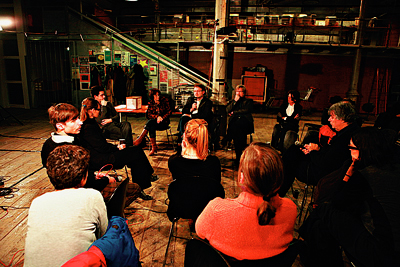



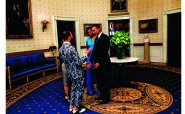
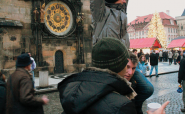
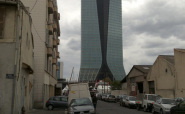
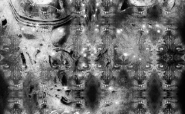












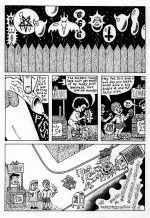
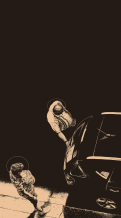
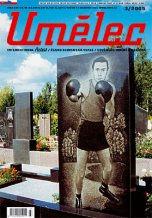
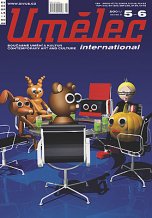


 New book by I.M.Jirous in English at our online bookshop.
New book by I.M.Jirous in English at our online bookshop.
Comentarios
Actualmente no hay comentariosAgregar nuevo comentario